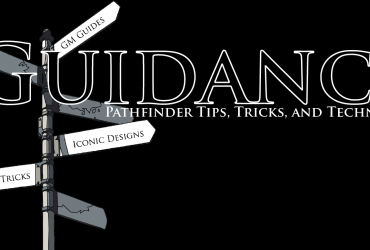Today I wanted to talk a bit about NPCs in your game. This isn’t a mechanics article. I’m not delving into crunch. But I do want to talk about NPC fluff. What they’re for, why they matter, and how you can make better use of them. It doesn’t really matter what type of game you play, how immersive it is, or what genre it exists in. Non-player characters are a common thread amongst all of them. NPCs are important because they are the main agents through which a GM interacts with players. They’re the mouthpiece. They take on the role of quest-givers, storytellers, adversaries, and plot devices. They put the roleplay in the roleplaying game. They have the potential to be the most memorable part of a roleplay experience. And they can often be easily overlooked.
So what goes into a good NPC?
That’s a simple question with a tricky answer. An ideal NPC is one that connects with players and their characters – a connection that can most easily be identified as an emotional reaction. It doesn’t have to be a positive or negative one reaction. In many cases the type of reaction is less important than its magnitude. As a GM you’re striving for emotion from your players towards NPCs. Because that’s one of the strongest connections you can create. Think of Joffrey in Game of Thrones. That petulant sadistic boy pretending at rulership. Everyone hated him. He’d be the type of NPC I’d love to cultivate for my game. Make him an enemy or occasional ally. Force my players to interact with him. Maybe even let them try to kill him.
But there’s a catch.
When creating NPCs or when presenting them to your players, you never know before hand who they will or won’t connect with. Forcing the type of connection I mention above is blunt, and can be more than a little obvious, which ruins the entire process. As a GM you want your PCs to feel like their decisions are important and matter in the game, which includes the NPCs they choose to associate with. All you can do is present your players with NPCs you hope are interesting and take note of who they come to like or dislike. Very often it’s a random NPC that my players meet because they went off rails that they end up connecting with in preference to an NPC actually worked into the narrative of the adventure.
So it can be handy to have a list of traits or quirks that you can pull from to create an NPC on the spot. One sage piece of advice offered to me by James Jacobs is to keep a running list of names. Seriously, just a list that you can pull a name from whenever a player wants to talk to a as-yet non-existent NPC. Name of a local merchant? Name of the last surviving and surrendered bandit? Name of a mysterious hermit? You’ve got one because you’ve got a list. It makes you look super prepared. Every time you use a name, cross it off the list and add more in your free time.
It can be similarly helpful, although less necessary in my opinion to keep a list of occupations, quirks, or other traits to give NPCs on the spot. But that’s what random generators are for. A far more useful tool in my experience is to cultivate a series of personas that you can seed into your roleplaying of NPCs. By that I mean varying accents, dictions, and moods for your NPCs to have. For example, a lot of commoners or farming peasants of my games tend towards the southern drawl of Forrest Gump while much of the nobility or aristocracy take on a lilting faux British tone. Alternating pitch and tone for these accents gives me a range of different ways to portrait individuals my PCs might meet. If they happen to connect with one or another of them, I note it down and that NPC becomes a recurring character.
Here is a short video series that walks through the basics of a number of accents that you might find fun to try out for your games. I found it useful starting out, and I hope you might too.





